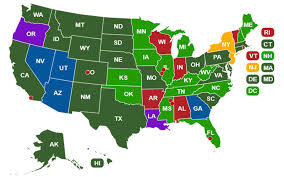If you’re new to kratom or thinking about ordering online, one of your first questions is probably: Is kratom legal where I live? The answer depends on your location. This guide breaks down the legal status of kratom across the U.S. in 2025.
Kratom: Legal at the Federal Level
As of 2025, kratom is not scheduled federally in the United States. This means it’s not classified as a controlled substance by the DEA. However, states and cities are allowed to set their own rules—and many have.
U.S. States Where Kratom Is Banned (2025)
Kratom is currently banned in the following states:
-
Alabama
-
Arkansas
-
Indiana
-
Rhode Island
-
Vermont
If you live in one of these states, kratom cannot be sold, possessed, or shipped.
Cities & Counties with Local Bans
Even if your state allows kratom, some local areas have their own bans:
-
San Diego, CA
-
Sarasota County, FL
-
Jerseyville, IL
-
Union County, MS
-
Denver, CO (banned for human consumption)
States with Kratom Consumer Protection Acts
Several states have adopted Kratom Consumer Protection Acts (KCPA) to regulate safety, labeling, and purity. These include:
-
Arizona
-
Georgia
-
Nevada
-
Utah
-
Oklahoma
This is a good sign—it means kratom is legal and held to quality standards.
Interactive Legal Map (Coming Soon)
We’re building a real-time map of kratom legality in every U.S. state and major city. Bookmark this page and check back for updates.
FAQs About Kratom Legality
Q: Can I travel with kratom between states?
A: Yes, if it’s legal in both your departure and arrival states. Keep it in original packaging.
Q: Is it legal to order kratom online?
A: Yes—unless you live in a banned state or locality.
Q: Will kratom show up on a drug test?
A: Most standard panels don’t test for kratom, but specialized ones might.
What You Can Do
-
Check your state and city laws before ordering
-
Sign petitions and support advocacy groups
-
Shop from reputable vendors who follow state regulations
See Our Legal Shipping Policy | Join the Kratom Advocacy Alliance
Disclaimer: This article is for informational purposes only. Laws change often—please consult your local government for the most up-to-date information.








